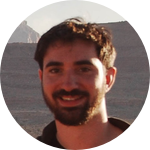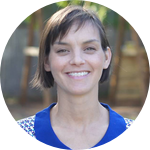About This Project
Opinions about unconventional oil/gas development (aka 'hydraulic fracturing' or 'fracking') are shaped by who we are (e.g., political ideology) and where we live (e.g., local employment in the energy sector). Those who live closer to such development also tend to be more supportive. However, we know little about how proximity to other types of energy development (e.g., pipelines, wind turbines) shapes opinions about fracking. This the goal of our project.
Ask the Scientists
Join The DiscussionWhat is the context of this research?
Prior research, including our own work, suggest that those who live closer to unconventional oil/gas development are more supportive of this development than those who live further away. However, we know little about how proximity to associated infrastructure, such as pipelines and export terminals, or competing infrastructure, such as wind turbines, shapes opinions. To explore how proximity to energy infrastructure beyond the wells themselves affects public opinion, we plan on polling a nationally-representative sample of respondents, measuring respondent proximity to other infrastructure, and analyzing how such proximity impacts opinions.
What is the significance of this project?
Research on public opinion about unconventional oil/gas development is increasingly relevant as the U.S. continues to expand oil and production. While the media often reports pockets of vocal community opposition to fracking development, prior research suggests, on average, that those who are located closer to fracking are more supportive. Understanding how proximity to other related or competing infrastructures shapes opinions could prove important. Factors that influence opinions about fracking are likely more complex and context dependent than demographics, political ideology, and other standard measures used to explain opinion.
What are the goals of the project?
The funds will be used to purchase responses to 6 survey questions about fracking opinions from a nationally-representative sample of Americans. The online survey instrument will be designed to elicit opinions and perceptions about fracking, as well as economic, social, and environmental perspectives. Location data about current and proposed energy infrastructure will be obtained from publicly available sources and applied in our analysis. Our goal is to better understand the relationship between proximity to associated and competing energy infrastructure and public opinions toward fracking.
Budget
This budget will cover the costs of including six questions about fracking opinions (e.g., support/opposition, risks/benefits) in an online, nationally-representative survey available through GfK. GfK is a marketing and analytics firm that conducts regular surveys, providing a cost-effective option for researchers to quickly gather representative opinion data.
Endorsed by
Meet the Team
Chad Zanocco
Chad Zanocco is a current graduate student at Oregon State University and is a PhD candidate in the School of Public Policy. He holds a bachelor's degree in Economics from University of Illinois at Urbana-Champaign and master's degree in Agricultural and Resource Economics from University of California at Davis. He also has a graduate certificate in GIScience from Oregon State University.
Prior to returning to graduate school, Chad served as an Americorps volunteer in northern California where he administered a small-business scholarship program for Arcata Economic Development Corporation. He has worked on multiple alternative future scenario modeling projects, and currently studies, as part of his dissertation, how landscape visualizations are used to understand and communicate information. He is particularly interested in exploring how spatial data can be incorporated in public opinion research, and how this can be visualized at landscape-scale for communication purposes.
Hilary Boudet
Hilary Boudet is an Assistant Professor of Climate Change and Energy in the Department of Sociology at the School of Public Policy at Oregon State University. Her research interests include environmental and energy policy, social movements, and public participation in energy and environmental decision making.
Before joining the faculty at Oregon State University, Hilary was a Postdoctoral Scholar at Stanford University, where she managed a community-based intervention with 30 Girl Scout troops aimed at reducing household energy use. In 2010, she completed her dissertation in Stanford’s Emmett Interdisciplinary Program in Environment and Resources on the factors and processes shaping community opposition to energy development.
Prior to Stanford, Hilary worked for three years as a senior project engineer in the environment and\ regulatory group at the ExxonMobil Development Company. She holds a BA in Environmental Engineering and Political Science from Rice University.
Project Backers
- 15Backers
- 27%Funded
- $1,309Total Donations
- $53.93Average Donation


